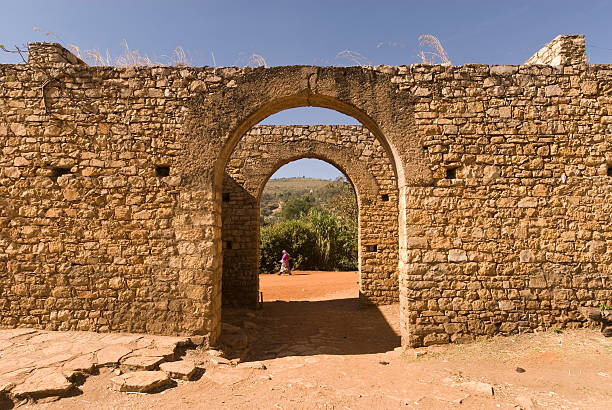Language Ideologies and Challenges of Multilingual Education in Ethiopia The case of Harari Region
- Identifier
- 341
- Title
- Language Ideologies and Challenges of Multilingual Education in Ethiopia The case of Harari Region
- Author
- Moges Yegazu See all items with this value
- Date
- 2006 See all items with this value
- Type
- Books See all items with this value
- Description
- In Ethiopia the language question is one of paramount importance, since the Constitution of1995 confers rights up to secession to population groups on the basis of their ethno-linguisitccharacter. Ethiopia’s geo-political units are thus primarily defined by language and ethnicity.In this context, the ancient city of Harar presents a particularly interesting case for study andrepresents a unique geo-political entity within Ethiopia. The huge linguistic and relatedsocio-political and ethnic diversities of Harar produce a microcosm of the Ethiopian State itselfand thus provide a fertile ground for asking questions about multilingualism, federalism andethnicity that have relevance beyond Harari Region itself.The primary objective of this study was to make a critical appraisal of the implementation ofvernacular education in the Harari region and examine the challenges of providing primaryeducation in several Ethiopian and international languages, i.e. English, Amharic, Oromo,Arabic and Harari. The study made a comparative assessment of the use of languages asmedia of instruction for primary education, and concluded with an appraisal of the relativestrengths and weaknesses in the use of each language, from both pedagogical and socialperspectives.The study has two major focal areas: policy formulation and policy implementation. The first partlooked at the current educational language policy against the background of the socio-culturalhistory of the country and outlined the ideological foundations of this policy and its political andsocio-economic implications. The second part examined the implementation model adopted anddealt with issues, such as the level of development of the languages involved in the schoolsystem, the school environment, the appropriateness of orthography, the teaching methods andmaterials used.The research was a field study in which qualitative and quantitative primary data were gathered,classified, analyzed and interpreted using various techniques. Because of the multipleobjectives outlined above, the study followed a mixed research method such that a qualitativeresearch paradigm was be used for some parts of the research and a quantitative researchparadigm for other parts. The two research paradigms are considered to be complementary inthe sense that one set of results is complemented by another set of results and generalizationsare made on findings that emerge from both methods together. The qualitative approach is usedto carry out inquiry into the perceptions and aspirations of the community at the individual aswell as the collective level. Types of qualitative research methods that have been employed togather data include: historical survey, ethnographic research and phenomenological research.The following conclusions have been drawn on the implementation of the policy of vernaculareducation in Harari.It is clearly a multilingual education model, involving the use of three languages. Harari andOromo are local mother tongues (L1) and Amharic is the indigenous language of widercommunication (LWC) (L2). English and Arabic are foreign languages (L3). This model is in linewith UNESCO’s recommendation of having three languages (L1, L2 and L3) in multilingualprimary education; a recommendation that follows from the position that teaching in the mothertongue is most effective in the academic achievement and cognitive development of the child.The model implemented in Harari has, therefore, a strong component of mother tongue education.
- Author Ethnicity
- Non-Harari
Contribute
Edit this recordPosition: 0 (0 views)


Comments
No comment yet! Be the first to add one!